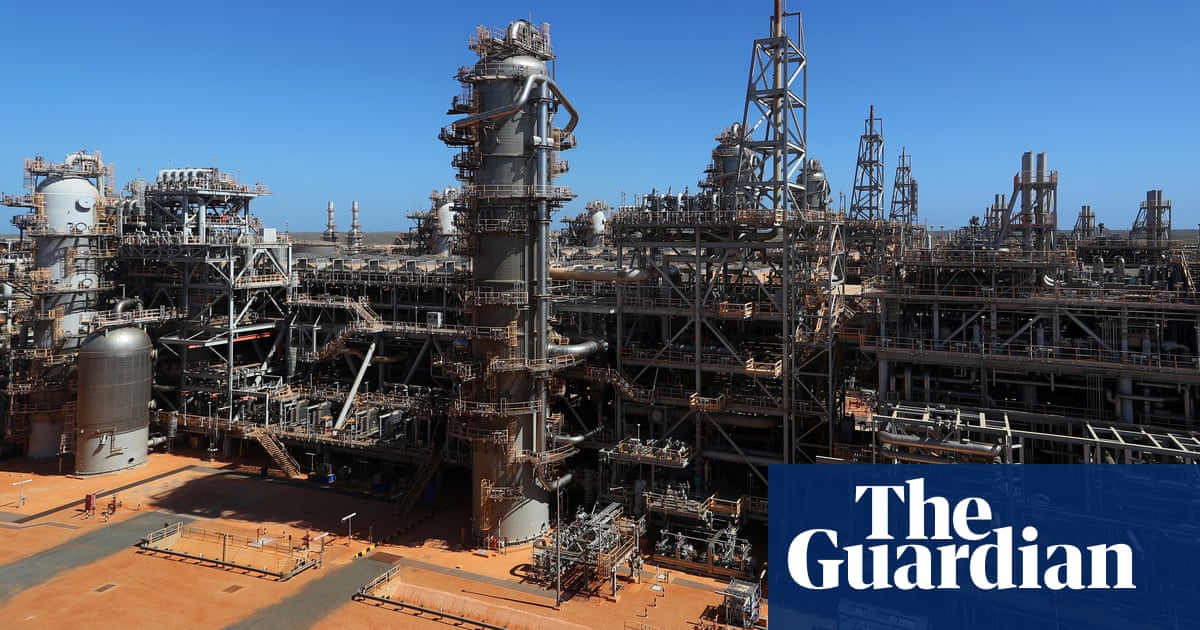Jim East
- 70 Posts
- 31 Comments

 4·1 day ago
4·1 day agoSome do! Or at least, they give you a choice of OS at different price points. NovaCustom, Eurocom, and AVA Direct come to mind. Of course, there are also plenty of vendors that ONLY offer GNU/Linux pre-installed…

 1·1 day ago
1·1 day agoCow pasture accounts for about 80% of Amazon deforestation since 1970, but feedcrops like soya are still a significant contributor. Animal agriculture excluding cow pasture accounts for an additional 12% of deforestation, and part of that is soya monocultures. Perhaps the bigger problem with soya cultivation in the Amazon is the opportunity cost that is not apparent from the deforestation numbers: it is often grown on former pasture lands that could have otherwise reforested themselves.
That said, you’re right that not buying soybeans from Brazil would have little impact, as the vast majority of the soybeans produced in Brazil are fed to “livestock” animals.

 2·1 day ago
2·1 day agoTo be clear, the vast majority of the soybeans produced in the Amazon (and elsewhere) go towards “livestock” feed, so buying edamame or tofu isn’t really contributing much (if at all) to Amazon destruction, Atlantic Forest destruction, Cerrado destruction, or any other soy-related destruction in Brazil.

 2·2 days ago
2·2 days agoAh, of course. If you depend on the government and human-made infrastructure, New Zealand and Finland and the like are definitely more reliable than any countries at the equator. (Except Singapore? Interesting.) Governments don’t grow durian though.

 1·2 days ago
1·2 days ago



Severe weather events in New Zealand
I know that New Zealand has the ocean to buffer it against temperature extremes, but based on this image:

it seems that the island of New Guinea, which is also east of the Wallace Line, has experienced similarly mild warming in recent decades. Maprik (3.63°S, 143.05°E) at ~200m, for example:


seems to have a much more durian-friendly climate than even areas at sea level on the north island of New Zealand (e.g. Ahipara).
And that’s not even Borneo. What is the advantage of New Zealand? Am I missing something?

 3·2 days ago
3·2 days agoBest way to protect yourself is to find some land at a comfortable elevation near the equator and start planting fruit trees.

 5·2 days ago
5·2 days agoNot even fair to compare to 2024. This year is on track to be the warmest non-El Niño year on record.

 2·5 days ago
2·5 days agoMy immediate concern is what a sufficiently large asteroid might do to the durian trees. Mangosteen survived Krakatoa by becoming a lesbian, but I wouldn’t gamble with durian. Can’t some aliens just sterilise the humans instead? (Non-violently, of course.)
THIS is the actual definition of Veganism, directly from the people who coined the term:
That definition is from 1988, so it’s questionable whether it came “directly from the people who coined the term” in 1944. Here is a re-publication of the 1951 Leslie Cross definition:
“The object of the Society shall be to end the exploitation of animals by man” and “The word veganism shall mean the doctrine that man should live without exploiting animals.”
Allegedly someone read The World Peace Diet (by Will Tuttle) to Donald Watson on his deathbed, and Donald Watson said that the book encompassed everything that he intended when he founded the Vegan Society. Make of that what you will.

 1·13 days ago
1·13 days agoProbably ‘Silk’, AKA Latundan, from the Philippines.

 1·15 days ago
1·15 days agoLet us not forget that this is primarily due to deforestation, whether directly (due to loss of tree cover for moisture retention) or indirectly (due to climate change).

 1·15 days ago
1·15 days agoWe need both, obviously. Ending animal agriculture is the most practical way to achieve it.

 4·17 days ago
4·17 days agoThe article is definitely lacking details about the Moche and Chimu cultures. The coast of Peru has a history of severe droughts and floods and landslides and earthquakes, yet these people had advanced irrigation systems and managed to live in such an environment for centuries. From what I understand, it’s the communal management and temporary nature of the irrigation infrastructure that differs from modern methods, but the how of managing it and moving it over time is left out. If anyone knows more, perhaps they can comment here.

 1·23 days ago
1·23 days agoLychee can grow at tropical latitudes, but it needs hot (rainier) summers and (drier) winters w/ 50-150 hours at 0-12°C in order to fruit well, so it’s more of a subtropical fruit.
!fruit@slrpnk.net welcomes you!

 1·26 days ago
1·26 days agoEven if you cover the whole planet in forests, there is a finite amount of fossil fuels you can burn before it is negated.
I think that this is the crux of the matter, and of course you’re right. The total amount of carbon stored in fossil fuels is (presumably, without searching for the numbers) much greater than the amount currently stored in living organisms, so there is a finite amount of fossil fuels that can be burnt before the carbon emissions exceed the capacity of forests/vegetation to capture it. Do you know what that “finite amount of fossil fuels” would be? From what I have seen, it is quite large, though humanity is rapidly approaching it. What’s needed is for the rate of emissions to be reduced below the rate of capture, and so a reduction in fossil fuel use is urgently needed, but I wouldn’t say that completely eliminating fossil fuel use is more important than protecting forests. All that’s needed in the long term is for carbon capture to at least equal carbon emissions. In the short term, the planet is already close enough to the “point of no return” that reforestation is necessary in order to bring down levels of carbon dioxide, regardless of how quickly fossil use ceases. It has to be both. Burning fossil fuels is not a sustainable way to meet the energy needs of 8 billion+ humans. Cutting down forests for biofuel is not a sustainable way to meet the energy needs of 8 billion+ humans. Deforestation for biofuel would be sustainable for a much larger population than would burning fossil fuels (due to the extremely slow renewal rate of fossil fuels), but we’re past that point. There’s not enough land. Either energy consumption needs to drastically decrease, or non-combustion sources of energy are needed.
I get the impression that we are essentially “on the same side” and just quibbling over details. You make an excellent case against fossil fuels! Looking at it in terms of the broader carbon cycle makes the necessity of ending fossil fuel use very obvious even ignoring any concerns about pollution, destructive extraction practices, or other harmful effects.

 1·26 days ago
1·26 days agoI understand what you’re getting at, but I don’t see it as being so simple.
Fossil fuels are essentially just ancient soil carbon, so in a way, we’re talking about the same thing on different time-scales. My point was/is that the combination of deforestation and burning of the cut biomass actually reduces the amount of carbon that can be stored in the soil on a given area of land, not just releasing it once and then recycling it. To capture the same amount of carbon again would require a greater area under management than the area originally cut. On a finite planet, there is a limit to how much this deforestation for biomass production could be scaled up without net-positive emissions. (I’m tired, so this may not be the most articulate.)
The world’s forests capture a substantial amount of the carbon dioxide emitted by humans, and extensive reforestation could capture even more. By reducing the carbon capture potential of forests, that’s less carbon dioxide absorbed year after year. Over a very long period of time, “releasing it one time” is what burning fossil fuels does: it releases stored carbon once, and then trees and other plants recycle it. Deforestation reduces the recycling.
Even though mature forests can store more total carbon, it seems that young forests, with more small trees, may actually be able to absorb more methane, so there can definitely be some advantage to managing trees for wood production on a short cycle. Methane is a much more potent greenhouse gas than carbon dioxide, so this is one way in which the overall situation is complicated.
Of course, avoiding both deforestation and fossil fuels is even better.
I’m glad that we agree on this point. It doesn’t need to be one or the other. The most effective approach to addressing climate change would involve reforestation and eliminating dependence on fossil fuels by developing clean energy technologies.
Ultimately, carbon capture just needs to match carbon emissions (plus a bit extra at first to compensate for current overshoot), and realistically, it will take both reforestation and a reduction in emissions to achieve that. Ending animal agriculture makes the most progress toward both.

 1·26 days ago
1·26 days agoOne more reason to grow your own food.





















After playing with it, it seems that it’s only possible to embed images, not
.mdfiles or other text.